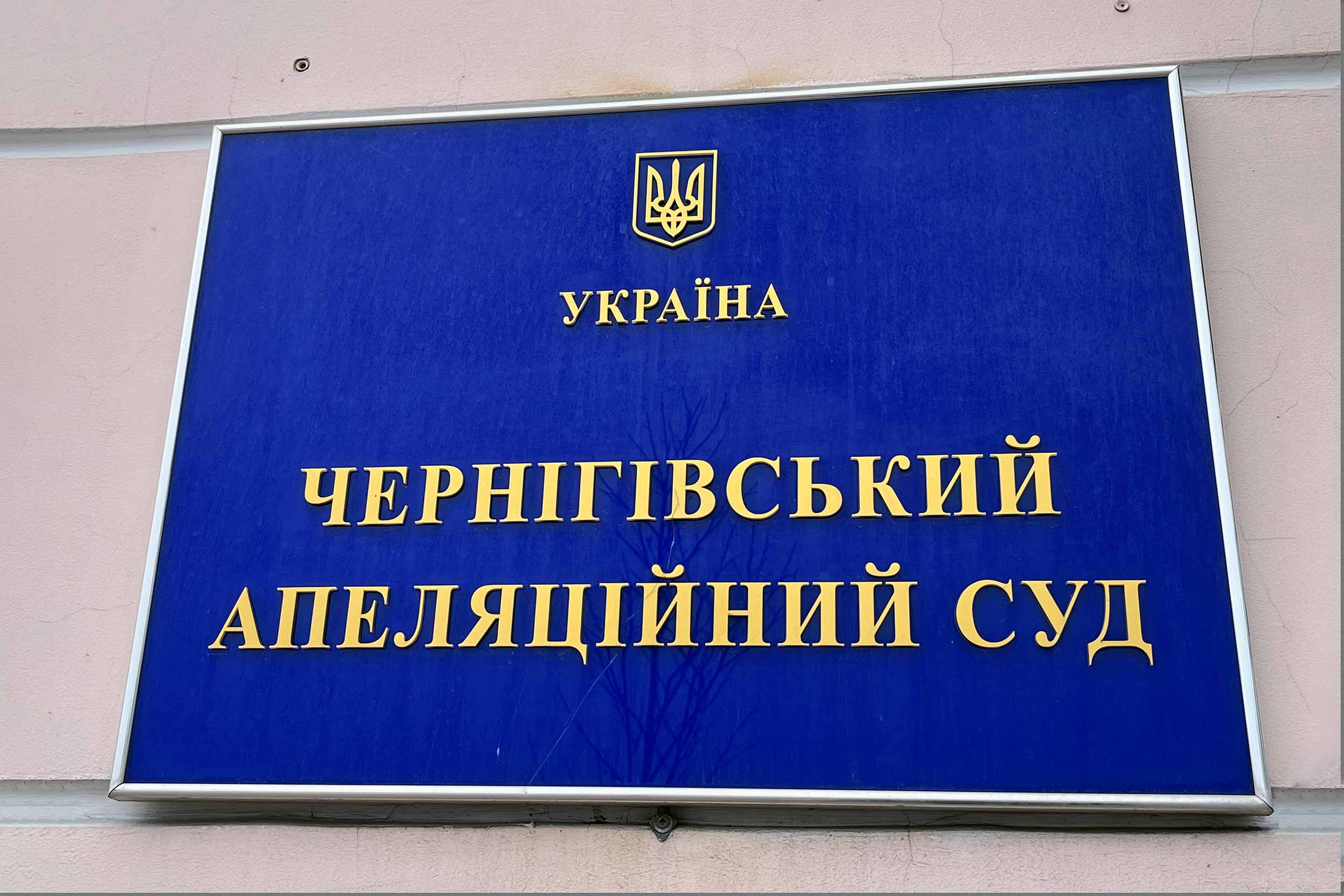First Appeal Over in Absentia Trial
Defence lawyer contests circumstances surrounding identification of military man convicted of war crimes.
The first appeal following the in absentia conviction of a Russian soldier in Ukraine has been refused by a Chernihiv court.
In November 2022, Andrii Chudin was convicted of war crimes by the Novozavodsk district court, alongside his commander Ruslan Kuliiev.
Their prosecution concerned the first officially confirmed case of sexual violence against a minor girl by the Russian military in Ukraine.
Kuliiev was found guilty of sexually harassing a minor girl in a village near Chernihiv and, together with Chudin, of abusing her brother who was beaten and left naked in the cold in handcuffs.
Both Kuliiev and Chudin were indicted by Ukrainian investigators under Part 1 of Art 438 the violation of the laws and customs of war of the criminal code of Ukraine concerning the cruel treatment of the civilian population. Crimes under this article are punishable by a prison sentence of eight to twelve years. Kuliiev was sentenced in absentia to a maximum of 12 years imprisonment and Chudin to ten years in prison. Bothe were declared internationally wanted men.

On March 23, the Chernihiv court of appeals considered and appeal against the decision of the court of first instance filed by Chudin's lawyer Oleh Kostiuk. In the case of its satisfaction and the cancellation of the original sentence, the court's decision would apply to both persons convicted in absentia trial. Kuliiev's defence lawyer did not file an appeal.
Given the specifics of the case – that it concerns sexual violence and that one of the victims is a minor – the court proceedings were closed. The victims' presence at the appeal is not mandatory, and their testimony was recorded on video by the prosecution.
Kostiuk noted that the appeal does did deny that the Russian military committed war crimes in the territory of Lhiv village in Chernihiv region. Moreover, the lawyer himself is a victim of the Russian actions, as his house was damaged as a result of the shelling.
The circumstances contested in the appeal relate precisely to Chudin's identification and the correctness of the wording of the indictment by the court of first instance. In Kostiuk’s opinion, there were violations.
"In order to convict a person, it is necessary to identify him - to identify the person who committed the crime,” Kostiuk said. “If the identification takes place in violation, in the opinion of the defence, of certain requirements of the criminal procedural law, then such finding is illegal and, accordingly, the court cannot refer to this evidence as properly admissible.”
He continued, “I am for the objective fact of the truth in this case. If a person is guilty, let him answer [to justice], but this decision must be made in accordance with the requirements of the laws of Ukraine.”
Kostiuk said that it was not relevant that, as that Russia is excluded from the Council of Europe, its citizens cannot appeal to the European Court of Human Rights with complaints about decisions made against them.
"We don't know how the legislation will change,” he said, adding, “Such cases should be considered more carefully and so there are no questions about verdicts and court decisions: neither in the European community, nor in the Russian Federation, nor in Ukraine, in accordance.”
Commenting on the appeal, prosecutor Ihor Kondratyuk, said that “according to the defence, we could falsify, substitute any third-party image and say that it is Chudin. But everything was proven in our case”.
He said that the boy who was tortured recognised photographs of the Russian soldiers in question.
The Chernihiv court of appeals did not satisfy the lawyer's complaint and the sentence against Chudin and Kuliiev entered into force.
Kostiuk told IWPR that he was waiting for the full text of the decision in order to analyse it. If there were grounds, he said he was ready to file a cassation appeal.
Meanwhile, in Chernihiv, a second appeal is being prepared for consideration against the verdict in absentia of another Russian soldier convicted of brutal treatment of civilians in the village of Yagidne.
The first appeal against an in-person verdict against a Russian soldier in Ukraine was a complaint filed in the case of the captured tanker Vadim Shishimarin. The 21-year-old became the first Russian soldier to be convicted of a crime against a civilian in Ukraine under Part 2 of Art 438 of the criminal code concerning the violation of the laws and customs of war. The court of first instance sentenced him to life imprisonment for the murder of a civilian in the Sumy region on February 28, 2022. However, the Kyiv court of appeal reduced the sentence to 15 years in prison.
